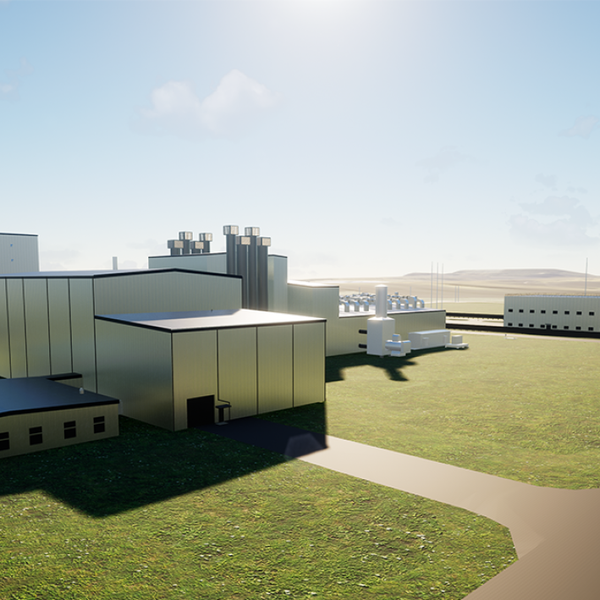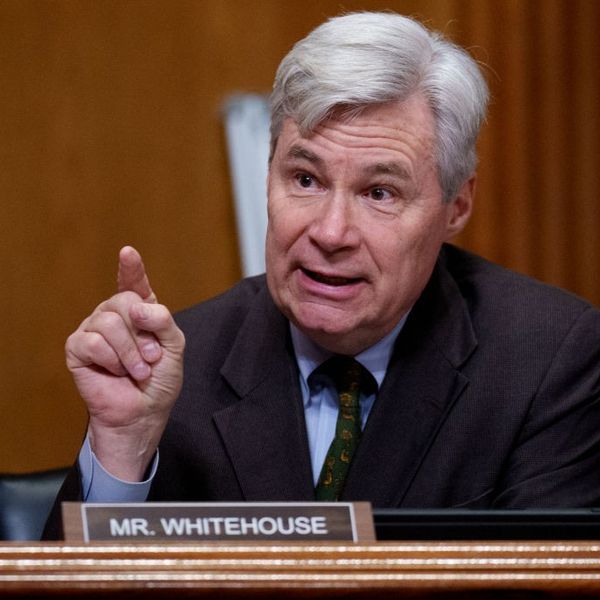DOE Awards Nuclear Grant to Three-Mile Island Firm
Administration pushing modular nukes: 'best thing since sliced bread'
The Energy Department awarded a grant on Tuesday to Babcock & Wilcox--best known for its design of Three Mile Island--for a class of small nuclear reactors.
The North Carolina-based company will receive an unspecified portion of a $452 million Department of Energy grant that aims to speed commercialization of modular nuclear reactors.
"The Obama administration continues to believe that low-carbon nuclear energy has an important role to play in America's energy future," said Energy Secretary Steven Chu in a statement Tuesday.
Modular reactors, about one-third the size of a conventional nuclear power plant, are designed to be less expensive--and supposedly safer--than existing plants.
"The newest reactor is always the greatest thing since sliced bread," said Arjun Makhijani, president of the nonprofit Institute for Energy and Environmental Research in Maryland. "We've always been told that nuclear reactors are economical." He adds:
I simply do not believe that reactors properly designed with adequate safety systems would be cheaper than large reactors. You have to worry about if there are leaks. You have to worry about containment.
What will be the cost of guarding these reactors? All these things are being said about the safety and attractiveness of these reactors without a single one having gone through licensing with the Nuclear Regulatory Commission.
Anti-nuclear activist Harvey Wasserman writes that the "small modular nukes must still be fought," adding that "the numbers on this imperfect technology do not work without massive taxpayer subsidies or public liability insurance."
The Obama administration is promoting their development as part of an "all-of-the-above" approach to American energy production.
After a "cooperative agreement" is reached with B&W, the DOE will use remaining program funds to finance other reactor designs.
An Urgent Message From Our Co-Founder
Dear Common Dreams reader, The U.S. is on a fast track to authoritarianism like nothing I've ever seen. Meanwhile, corporate news outlets are utterly capitulating to Trump, twisting their coverage to avoid drawing his ire while lining up to stuff cash in his pockets. That's why I believe that Common Dreams is doing the best and most consequential reporting that we've ever done. Our small but mighty team is a progressive reporting powerhouse, covering the news every day that the corporate media never will. Our mission has always been simple: To inform. To inspire. And to ignite change for the common good. Now here's the key piece that I want all our readers to understand: None of this would be possible without your financial support. That's not just some fundraising cliche. It's the absolute and literal truth. We don't accept corporate advertising and never will. We don't have a paywall because we don't think people should be blocked from critical news based on their ability to pay. Everything we do is funded by the donations of readers like you. Will you donate now to help power the nonprofit, independent reporting of Common Dreams? Thank you for being a vital member of our community. Together, we can keep independent journalism alive when it’s needed most. - Craig Brown, Co-founder |
The Energy Department awarded a grant on Tuesday to Babcock & Wilcox--best known for its design of Three Mile Island--for a class of small nuclear reactors.
The North Carolina-based company will receive an unspecified portion of a $452 million Department of Energy grant that aims to speed commercialization of modular nuclear reactors.
"The Obama administration continues to believe that low-carbon nuclear energy has an important role to play in America's energy future," said Energy Secretary Steven Chu in a statement Tuesday.
Modular reactors, about one-third the size of a conventional nuclear power plant, are designed to be less expensive--and supposedly safer--than existing plants.
"The newest reactor is always the greatest thing since sliced bread," said Arjun Makhijani, president of the nonprofit Institute for Energy and Environmental Research in Maryland. "We've always been told that nuclear reactors are economical." He adds:
I simply do not believe that reactors properly designed with adequate safety systems would be cheaper than large reactors. You have to worry about if there are leaks. You have to worry about containment.
What will be the cost of guarding these reactors? All these things are being said about the safety and attractiveness of these reactors without a single one having gone through licensing with the Nuclear Regulatory Commission.
Anti-nuclear activist Harvey Wasserman writes that the "small modular nukes must still be fought," adding that "the numbers on this imperfect technology do not work without massive taxpayer subsidies or public liability insurance."
The Obama administration is promoting their development as part of an "all-of-the-above" approach to American energy production.
After a "cooperative agreement" is reached with B&W, the DOE will use remaining program funds to finance other reactor designs.
The Energy Department awarded a grant on Tuesday to Babcock & Wilcox--best known for its design of Three Mile Island--for a class of small nuclear reactors.
The North Carolina-based company will receive an unspecified portion of a $452 million Department of Energy grant that aims to speed commercialization of modular nuclear reactors.
"The Obama administration continues to believe that low-carbon nuclear energy has an important role to play in America's energy future," said Energy Secretary Steven Chu in a statement Tuesday.
Modular reactors, about one-third the size of a conventional nuclear power plant, are designed to be less expensive--and supposedly safer--than existing plants.
"The newest reactor is always the greatest thing since sliced bread," said Arjun Makhijani, president of the nonprofit Institute for Energy and Environmental Research in Maryland. "We've always been told that nuclear reactors are economical." He adds:
I simply do not believe that reactors properly designed with adequate safety systems would be cheaper than large reactors. You have to worry about if there are leaks. You have to worry about containment.
What will be the cost of guarding these reactors? All these things are being said about the safety and attractiveness of these reactors without a single one having gone through licensing with the Nuclear Regulatory Commission.
Anti-nuclear activist Harvey Wasserman writes that the "small modular nukes must still be fought," adding that "the numbers on this imperfect technology do not work without massive taxpayer subsidies or public liability insurance."
The Obama administration is promoting their development as part of an "all-of-the-above" approach to American energy production.
After a "cooperative agreement" is reached with B&W, the DOE will use remaining program funds to finance other reactor designs.

